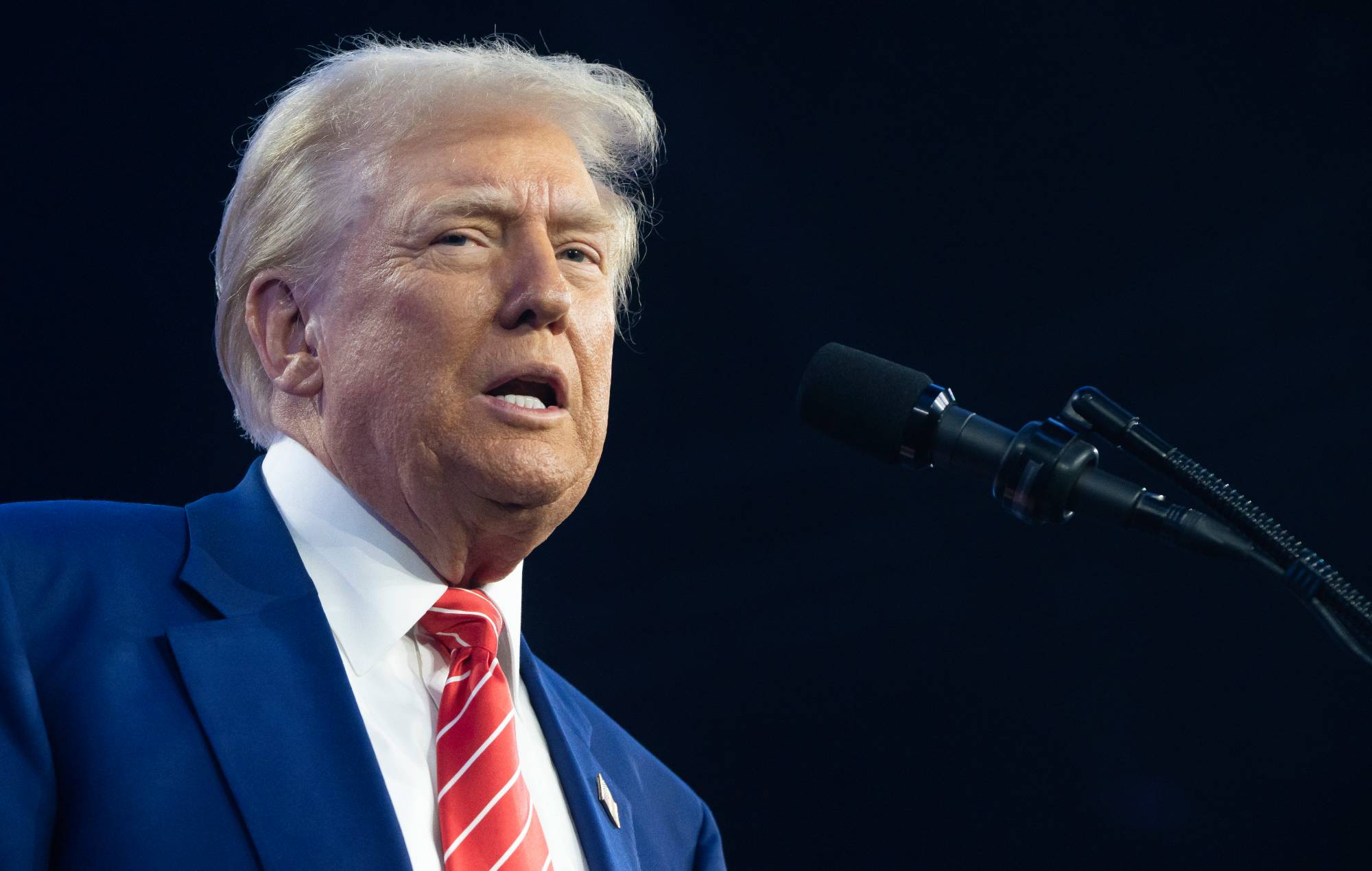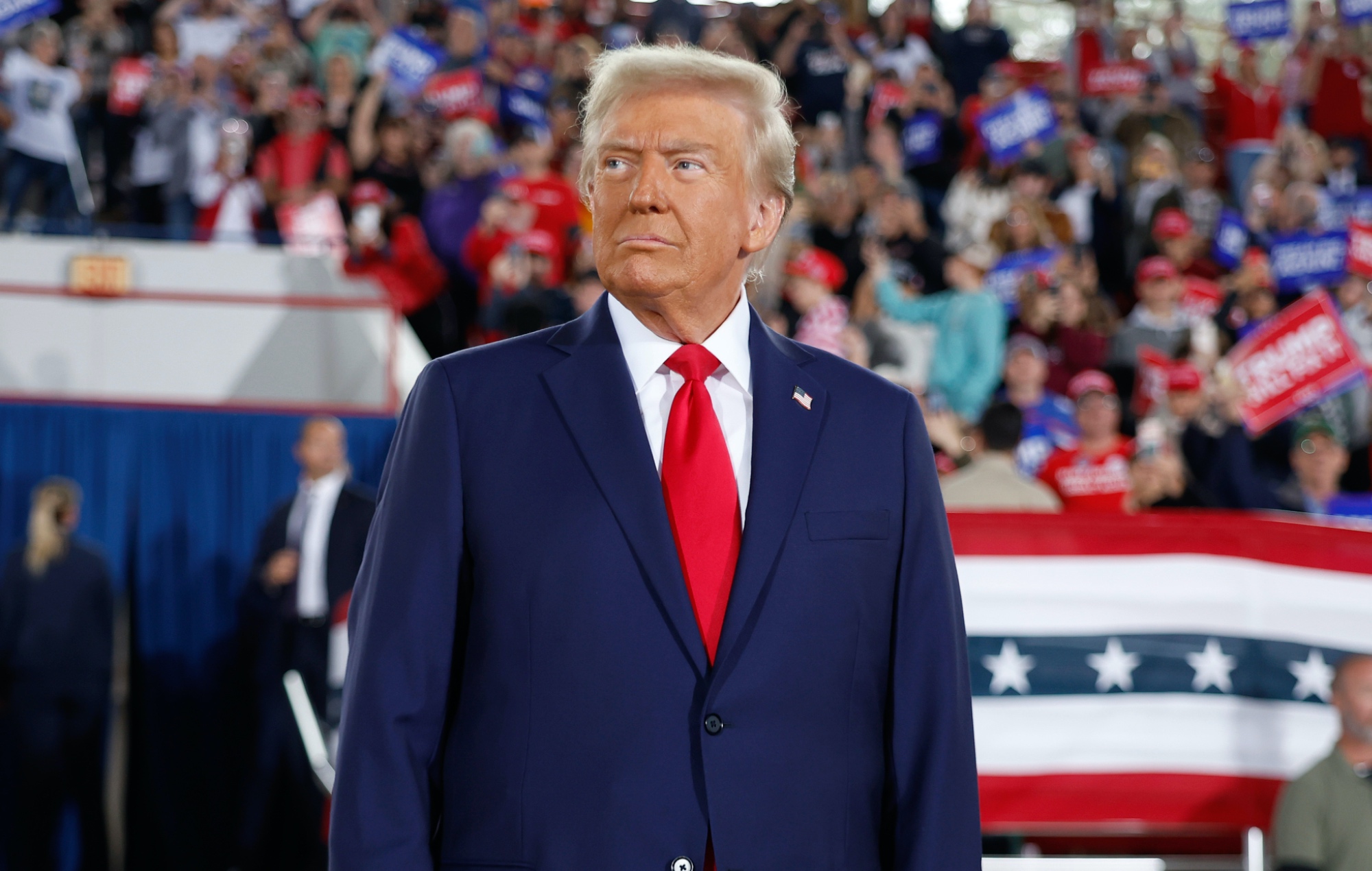Donald Trump asks US Supreme Court to delay TikTok ban

US President-elect Donald Trump has asked the US Supreme Court to delay a potential TikTok ban.
- READ MORE: Sped up songs: why are we so captivated by quick TikTok hits?
Trump’s lawyer filed a legal brief on Friday (December 27) saying he “opposes banning TikTok” and “seeks the ability to resolve the issues at hand through political means once he takes office”.
It follows TikTok, and its parent company, ByteDance, losing an appeal earlier this month, with a US federal appeals court panel deciding unanimously to uphold a law that will ban TikTok in the country.
Legal representatives of the social media app argued that the ban infringes upon the country’s First Amendment, however this was rebuffed by the court which said they were seeking to protect free speech and to limit “a foreign adversary nation” being able to “gather data on people in the United States”.
On 10 January, the court will hear further arguments on the law that requires TikTok to be sold off by, and break ties with, the China-based ByteDance – or be banned by 19 January – a day before Trump takes office.
Trump, who clinched a historic win in the 2024 US presidential election last month, has publicly opposed the ban, though he did support one in his first term as president.

“I have a warm spot in my heart for TikTok, because I won youth by 34 points,” he said at a press conference earlier in December, though Kamala Harris received the majority of votes from young voters. “There are those that say that TikTok has something to do with that,” he added.
Per BBC News, Trump met TikTok’s CEO, Shou Zi Chew, at his Mar-a-Lago estate in Florida last week.
In his court filing, Trump said the case represents “an unprecedented, novel, and difficult tension between free-speech rights on one side, and foreign policy and national security concerns on the other”.
It went on to say that Trump “takes no position on the underlying merits of this dispute”, but added that pushing back the 19 January deadline would allow him “the opportunity to pursue a political resolution” without having to resort to the court.

The sell-or-ban measure was issued into law by US President Joe Biden earlier this year (April 24), following a long-running dispute over claims that the company’s ownership structure could allow the Chinese government to gain access to the data of its millions of American users.
To date, over 30 American states, Canada, and the European Union have separately banned the app from use on government-owned devices over concerns it could be a security risk. India banned the app nationwide in January 2021, while Taiwan and Afghanistan did the same in 2022.
The consequence of TikTok’s US bans may have a sizeable impact on the music industry – a recent report by the platform claimed that a majority of US and UK chart-topping singles in 2024 were associated with a TikTok trend this year.
In May, TikTok also established a new licensing agreement with Universal Music Group, after the label initially withdrew its artists’ music from the platform as a result of both parties’ inability to work out a new deal.
In September, TikTok shut its streaming service, TikTok Music, after just over a year of operations.
The post Donald Trump asks US Supreme Court to delay TikTok ban appeared first on NME.



